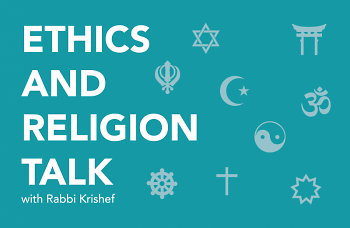Fred Stella, the Pracharak (Outreach Minister) for the West Michigan Hindu Temple, responds:
“When someone thinks of a Hindu they often visualize an Indian. And for the most part they are correct. The reason that Hinduism is not as diverse as some other faiths is that there is nothing similar to The Great Commission that was commanded by Jesus to encourage conversion. With few exceptions in our history have there been groups that one might call ‘evangelical.’ ”
“However, Hinduism has spread to various parts of the world. In particular, it is strong in several African countries, the Caribbean and Indonesia. The reason for this is that during the era of colonization many Indians agreed to be shipped to these places to become indentured servants. As one would expect, they brought their religion with them and it became part of the local landscape. But if you were to visit these countries today you would find that, still, the vast majority of Hindus are of Indian extraction. Hardly any natives ever join.
“Over the past 100 years or so several Hindu scholars and sages have made their way to the US. They have set up learning centers to serve both those born into the religion as well as people who are searching for a spiritual path that resonates with their worldview.
“So to be clear, it is perfectly acceptable to welcome new devotees into the fold. But there should never be any attempt by a Hindu to persuade people to leave their religion (or secularity) in order to become Hindu.”
Father Kevin Niehoff, O.P., a Dominican priest who serves as Adjutant Judicial Vicar, Diocese of Grand Rapids, responds:
“Belief systems today are spread the same way they have for millennia… through the witness of the goodness of the message of faith as it is lived out in the lives of those who believe. For Christians, we follow in the footsteps of Jesus bringing the good news to the world.
“When one is introduced to God… Father, Son, and Holy Spirit, his or her life is transformed. Each of us may recognize the presence of sin in our lives and ask forgiveness for the sins we have committed against one another.
“Saint Francis of Assisi is attributed to saying, ‘preach always, if necessary, use words.’ Preaching begins with a conversion of heart. This internal action becomes externalized when we recognize the presence of God in each person, we encounter… even the homeless man, woman, or child it is hard to see.
“For Catholics who have received baptism and confirmation, faith lives are supported by the sacraments of Eucharist and reconciliation (confession). Both sacraments provide the spiritual food Jesus introduced to the apostles and disciples throughout his life and ministry.”
The Reverend Colleen Squires, minister at All Souls Community Church of West Michigan, a Unitarian Universalist Congregation, responds:
“Unitarian Universalism has had some mild growth over the past few years. Our numbers are relatively the same or slightly higher than the previous year; holding steady which is better than declining in numbers. UUs are not particularly good at evangelizing our faith to others which is why most people have never heard of Unitarian Universalism outside of the Boston area. In fact, most of us find it to be a turn off to have someone knock on our door promoting their religion. In some ways we feel it is not any of our business to concern ourselves about another person’s religious belief. We are to respect another person’s right to their own path of inquiry. Honestly, we grow mostly by word of mouth or our websites when a person “googles” liberal religions.”
Rev. Ray Lanning, a retired minister of the Reformed Presbyterian Church of North America, responds:
“Presbyterian and Reformed Christians feel a deep-seated obligation to be faithful witnesses to Jesus Christ and the work of grace He has done (and is doing) in their lives. It is not a matter of imposing our religion on others, but of being ‘ready always to give an answer to every man that asketh you a reason of the hope that is in you’ (I Peter 3:15).
“Some of us are called as well to engage in evangelism or missionary work, or the ministry of the Word. But these forms of service to Christ involve special gifts and training. Christ compares such workers to farmers who sow their fields with the ‘seed’ of the Word of God (Luke 8:11). Christ has commissioned such workers to ‘go into all the world, and preach the gospel to every living creature’ (Mark 16:15), trusting that all who are ‘ordained to eternal life’ (Acts 13:48) will believe and be saved. We also believe that God ‘now commandeth all men everywhere to repent’ (Acts 17:30), and so yes, it is ‘acceptable to try and convert others.’ ”
This column answers questions of Ethics and Religion by submitting them to a multi-faith panel of spiritual leaders in the Grand Rapids area. We’d love to hear about the ordinary ethical questions that come up in the course of your day as well as any questions of religion that you’ve wondered about. Tell us how you resolved an ethical dilemma and see how members of the Ethics and Religion Talk panel would have handled the same situation. Please send your questions to [email protected].
The Rapidian, a program of the 501(c)3 nonprofit Community Media Center, relies on the community’s support to help cover the cost of training reporters and publishing content.
We need your help.
If each of our readers and content creators who values this community platform help support its creation and maintenance, The Rapidian can continue to educate and facilitate a conversation around issues for years to come.
Please support The Rapidian and make a contribution today.
